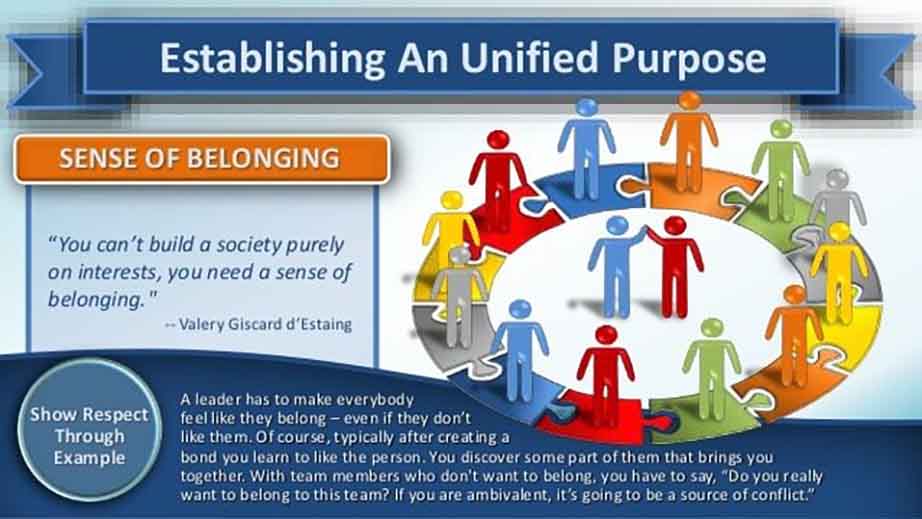For many, work provides a place to go, where people know you and welcome you as a member of the team, one who, like them, serves a purpose within the organization. For some, losing this sense of belonging, identity, and purpose can be a devastating blow. “I don’t know what I will do with myself. I will probably sleep my time away because there’s no reason For me to get up. Nobody would even find out if I died in my sleep.” Jennifer, 30, Office Assistant
TIP: Create reasons to get up, make plans to meet a supportive friend for breakfast, do volunteer work, join a support group or job finding club, or get involved with a hobby. Do this early in your unemployment. The longer you wait and allow feelings of isolation and lack of purpose to set in, the harder it will be to get back into the flow.
Change in Routine/Structure
After several years of establishing and adhering to the same routine, you may find it surprising after a week or two of not being bound by a routine and being a slave to an alarm clock, that you miss the structure work provided. Humans are creatures of habit, and most function much more efficiently when there is a certain degree of predictability to their lives. “It was great to sleep in for the first week, but after that, I found myself waking up early, and envying the people who had to go to work.” Mike, 41, Loading Dock Manager
TIP: Develop new routines if possible. Getting “out there” regularly will have a positive impact on your self-esteem and may have some other positive effects, such as keeping you aware of what’s going on in the community developing new contacts, etc.
Change of Status
Whether the job you lost was an upper-management position or an entry-level position, you, and possibly some of the people around you will perceive you as having a change in status. The reaction to others’ perceptions may not be apparent until you meet someone you know.
TIP: When interacting with your friends and acquaintances, let them know how you’re doing without making your situation the primary focus of every contact you make. This way, you’ll continually avoid bringing them down and burning them out. Also, continue to rejoice with them for the positive occurrences in their lives. ‘Misery may love company, but no one enjoys a wet blanket!’ When you’re new at a gathering, and they inquire, “So, what do you do?” Or your friends neglect to invite you to join them for the annual fundraising dinner at $100 a plate because “you’re unemployed now.” Whether real or imagined, the impact of this could deal a massive blow to your self-esteem.
TIP: Hold your head high. Remember, these widespread layoffs are a result of our country’s economic climate, and the loss of your job does not mean that you are a different person with lesser value and skills. Though your situation has changed, the position you have earned in the community need not. For example, if you have always contributed handsomely to some community organization, and are not currently in a position to donate money, offer your time or specialized skills.
TIP: When dealing with inquiries from new acquaintances, don’t feel obligated to share your whole story. Perhaps try saying, I’m a carpenter”, rather than I’m unemployed.”
Loss of Recognition
For many, the work environment may hold professional recognition, such as awards and performance appraisals. Or it could be informal recognition provided within the work setting, such as occasional words of praise from co-workers and management (e.g., “Great idea you had for the company newsletter!”).
TIP: Consider the kind and amount of recognition you require. Find other methods of acquiring what you want. You might participate in volunteer work or being on a Board of Directors. You could take a course where you may get recognition for your academic achievements, or seeking acknowledgment closer to home for contributions there.
Loss of Benefits
Often benefits are taken for granted until they’re gone. Depending on your situation, losing benefits such as dental, medical, life insurance, and others may represent a tremendous financial burden. On the other hand, it may cause some anxiety should you need protection, and you don’t have coverage.
TIP: Attempt to negotiate a continuation of benefits as part of your severance. Failing that, offer to pay the premiums for coverage to your employer so that you may still qualify for the group rates. If you are unsuccessful with both, look into the possibility of setting up your coverage plans. Some institutions offer programs to companies with as few as one employee. It may be worth exploring.
© Wordscapes® (David Turner). All Rights Reserved.




